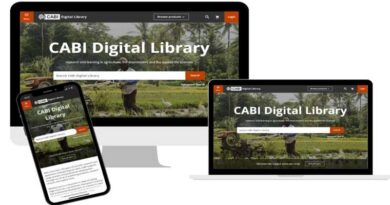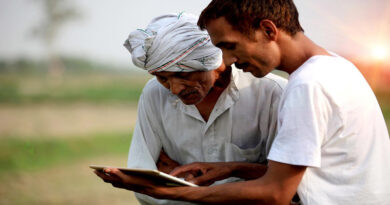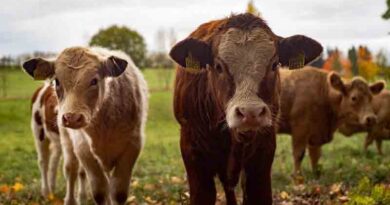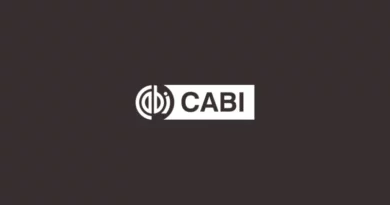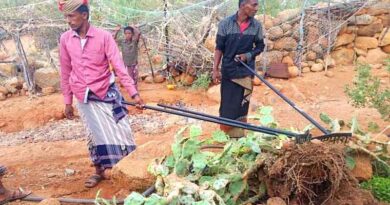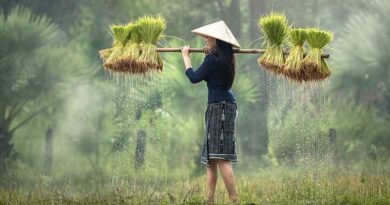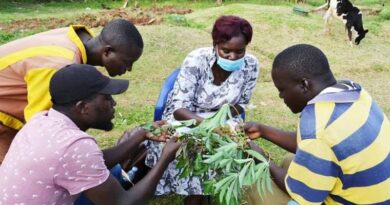Leading CABI science contributes to CABI Agriculture and Bioscience journal’s first impact factor
02 August 2023, Africa: Two CABI-led papers published in CABI Agriculture and Bioscience have contributed to the journal’s first impact factor of 3.9 – placing it in the first quartile of the Agriculture Interdisciplinary category in the Emerging Sources Citation Index (ESCI).
It is also the first journal from CABI which has achieved an impact factor. Other CABI journals on the CABI Digital Library include CABI Reviews, CABI One Health and Human-Animal Interactions.
Two of the top 10 cited articles within the 2022 impact factor window, which contributed to CABI Agriculture and Bioscience’s impact factor, were from CABI scientists who say inclusion in the journal has greatly benefited their research.
They included Dr Rob Reeder and Dr Philip Taylor’s 2020 paper ‘Antibiotic use on crops in low and middle-income countries based on recommendations made by agricultural advisors,’ which was accessed over 20,000 times and received 69 citations.
The press release, which accompanied publication of the article, was covered by more than 60 global media outlets with an estimated audience of nearly 10 million – including Frankfurter Allgemeine Zeitung, Instituto Humanitas Unisinos and the US press agency United Press International.
Dr Taylor, as a result of the paper being published, presented the findings at the National Academy of Science in Washington DC.
He was also accepted as a member of the United Nations Environment Programme (UNEP) working party concerned with antibiotic resistance and is now a part of the UN technical working group working towards producing the Quadripartite Guide on Integrated Surveillance.
Dr Taylor said, “The Antimicrobial Resistance (AMR) world is beginning to become joined up where it is clear that tackling antibiotic resistance requires some collaboration between the different sectors.
“The medical and veterinarian sectors are well represented and to some extent so is aquaculture. The one area that everyone thought was important but had no one to represent them was the crop sector. The paper has so far been the most cited one I have ever produced.”
Furthermore, the 2021 paper by Dr René Eschen et al, ‘Towards estimating the economic cost of invasive alien species to African crop and livestock production,’ was accessed over 9,000 times and received 37 citations. Among the citations were four policy documents from the UN Food and Agriculture Organization.
More than 110 media outlets – with an estimated audience of almost 19 million – covered the accompanying press release including The New York Times, Nature and Scientific American.
Dr Eschen said, “The tremendous publicity achieved from the paper being published in CABI Agriculture and Bioscience certainly helped promote our research to a much wider audience. This included the public but also stakeholders such as fellow researchers and organizations with a common interest in sustainable food security.”
CABI Agriculture and Bioscience was launched as an open access journal in 2020 to publish high-quality, rigorously peer-reviewed multi, inter and transdisciplinary research focused on agriculture, food security, and the environment.
The latest listing follows CABI Agriculture and Bioscience in March being included in Elsevier’s abstract and citation database Scopus along with more than 35,000 peer-reviewed journals – of which over 5,000 are gold open access.
As a signatory of the Declaration on Research Assessment (DORA), CABI promotes and supports article-based metrics but the impact factor is a metric often used to indicate the relative importance of a journal within its field and using the mean number of citations to papers published within a two-year window.
Over 47% of papers published in CABI Agriculture and Bioscience in 2022 were from authors coming from the Global South – including Mali, Cameroon and the CABI Member Countries Ethiopia, Kenya, Uganda and Tanzania.
Prof Niklaus Grünwald, the journal’s Editor-in-Chief, said, “This recognition will further increase the impact of CABI Agriculture and Bioscience to support transdisciplinary research to address some of the world’s most pressing challenges ranging from climate change, crop security to environmental stewardship.
“CABI Agriculture and Bioscience specifically aims to support research from underrepresented groups, women in agriculture, and highly transdisciplinary approaches that often do not find a home in traditional journals.”
Earlier this year, CABI Agriculture and Bioscience successfully set up and delivered Associate Editor training and mentoring in association with TCC Africa to support researchers with an interest in peer review. The journal is also committed to publishing research, reviews and commentary articles on strategies that help to address gender gaps in agriculture.
CABI Agriculture and Bioscience recently announced two new collections: Gender and Agriculture and International Year of Millets. The former is being guest edited by CABI’s Gender Coordinators Sajila Khan and Bethel Terefe with Frances Williams, Director of Social Sciences. The latter, meanwhile, is being guest edited by C. Tara Satyavathi, of the ICAR-Indian Institute of Millets Research, and Renu Pandley, from the ICAR-Indian Agricultural Research Institute.
Also Read: Oil Dispersion Formulations: A Game-Changer for Sustainable Agriculture
(For Latest Agriculture News & Updates, follow Krishak Jagat on Google News)



